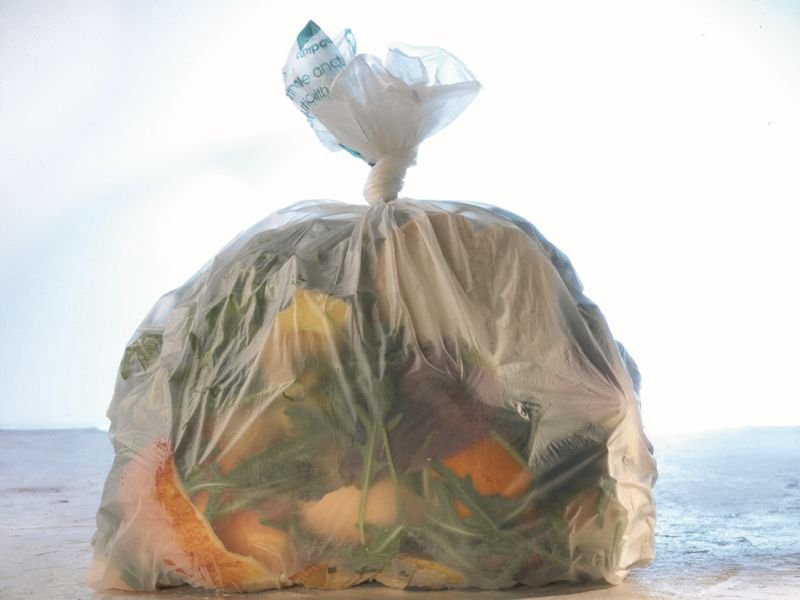Novamont, a leader in the development of bioplastics based in Italy, commissioned IGlux Witzenhausen GmbH and Witzenhausen-Institut GmbH to conduct a scientific study into the behaviour of biodegradable carrier bags made from MATER-BI – the bioplastic made by Novamont – in German anaerobic digestion plants. The use of biodegradable bags made from MATER-BI was tested in a procedure which encompassed the entire process using equipment made by four different companies: Kompogas, Thoeni, Bekon and WTT.
The bags were monitored during pre-treatment, anaerobic digestion, post-composting and maturation at each plant. The percentage by weight of MATER-BI in the input material was between 3.5% and 3.8%. Degradation began during the anaerobic stage and was completed during composting. In total the process took between five and ten weeks, depending on the plant.
No MATER-BI residue was found in any of the samples examined at the end of the test, demonstrating that it had completely degraded in all four plants.
The test was commissioned in Germany, where organic waste plays a significant role in the national renewable energy plan and is increasingly used to produce biogas. Efficient interception of this type of waste is therefore crucial for recovering the most energy-rich component, namely kitchen waste. Since 2015, separate biowaste collection is mandatory in Germany and certified bio-based and industrial compostable (EN 13432) bags are allowed to be used to collect and dispose organic waste in the biowaste bin.
In Paris, Novamont just recently signed a sponsorship agreement with the French Capital to launch the first phase of the separate collection of food waste. Around 75,000 Parisian households are provided with the essential equipment for the easy, hygienic, and correct collection of organic waste, including an aerated caddy and a stock of compostable bags for the collection of food waste.
Similar projects, for instance in cooperation between Novamont and the city of Milan, have proven that the use of biodegradable biowaste bags helps to significantly increase the amounts of biowaste being collected. In fact, the compostability of the bags is an essential feature ensuring the quality of the collection of organic waste and its transformation into high-quality biogas and compost.

Image: biowaste bag made from MATER-BI, Novamont